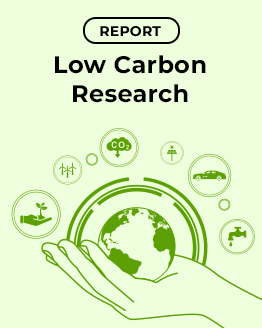The shift toward a low-carbon economy is one of the most significant challenges of current time, spurred by the urgent need to combat climate change and reduce the environmental impact of corporate activities.
Given this backdrop, Kalkine introduces its ‘Low Carbon Research’ Report. This report explores low carbon emission stocks from global markets including Australia, New Zealand, US, Canada and UK, focusing on companies that are committed to sustainability and responsible environmental practices. The objective is to pinpoint investment options in businesses that are not only financially robust but also actively reducing their carbon footprint, enhancing long-term value and managing risk for investors.
Why do Low Carbon Emission Stocks Matter?
Climate change is not solely an environmental issue, it also poses economic risks. Governments, regulators, and investors are increasingly holding companies accountable for their carbon emissions. Companies that lead in reducing their carbon output are positioned to thrive in the emerging low-carbon economy. They are less exposed to regulatory penalties, carbon taxes, and reputational harm, making them appealing investments as the world adopts more stringent environmental policies.
Stock Selection Criteria
To ensure the highest standards of environmental responsibility and financial performance, this report uses a rigorous stock selection process. The following criteria are applied to identify low carbon emission stocks:
- Carbon Emissions Intensity
- The carbon emissions intensity of each company is assessed, measured by the amount of carbon dioxide (CO₂) equivalent emissions per unit of revenue or production. Only companies with low emissions relative to their industry peers are considered.
- Companies that have committed to reducing their emissions through science-based targets, net-zero pledges, or participation in carbon reduction programs are prioritized.
- Sectors and Industry Focus
- This report not only focuses on industries that have a material impact on global carbon emissions, such as energy, transportation, manufacturing, and agriculture but also other sectors where companies are making significant efforts to reduce their carbon impact, including technology and finance.
- Prohibited sectors include companies in the thermal coal sector, controversial weapon industry, ESG controversies, oil sands extraction industries among others.
- ESG (Environmental, Social, and Governance) Integration
- Beyond carbon emissions, we assess companies’ overall ESG performance. This includes their governance structure, social responsibility initiatives, and broader environmental efforts.
- Strong corporate governance and ethical practices are essential in ensuring that companies maintain transparency and accountability in their environmental commitments.
- Sustainability Reporting and Transparency
- Companies that provide detailed and transparent reporting on their environmental impact, including carbon emissions, energy use, and sustainability initiatives are prioritized
- Preference is given to companies that align with internationally recognized sustainability reporting standards, such as the Global Reporting Initiative (GRI), the Task Force on Climate-related Financial Disclosures (TCFD), or the Sustainability Accounting Standards Board (SASB).
- Financial Performance and Growth Potential
- While environmental responsibility is a key consideration, financial viability is equally important. We select companies with a strong balance sheet, healthy cash flow, and a track record of financial performance.
Low carbon emission stocks are critical for investors who are looking to align their portfolios with the global shift towards sustainability and climate action. The global economy is moving towards decarbonization, with increasing regulatory frameworks, such as the European Union’s Green Deal and carbon-neutrality goals set by countries like China and the U.S. Investing in low carbon emission stocks aligns portfolios with these global trends, ensuring they remain relevant in a changing world.
AU


 Please wait processing your request...
Please wait processing your request...